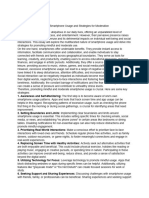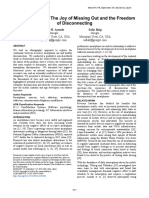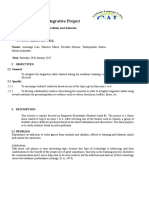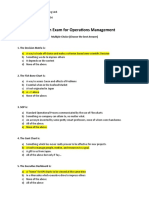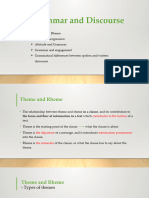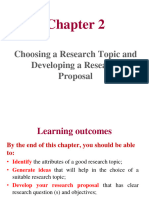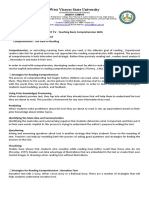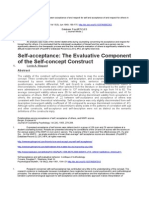0% found this document useful (0 votes)
5 views3 pagesThe Impact of Continuous Mobile Phone Usage On Health, Productivity, and Social Behavior
The document examines the impact of continuous mobile phone usage on health, productivity, and social behavior, highlighting both benefits and negative outcomes such as eye strain, sleep disturbances, and reduced interpersonal interactions. It aims to identify usage patterns, assess health effects, and explore changes in social behavior, particularly among youth. The study emphasizes the need for strategies to promote healthier mobile phone habits and suggests potential solutions like digital detox programs and awareness campaigns.
Uploaded by
shaikayeshabibi5Copyright
© © All Rights Reserved
We take content rights seriously. If you suspect this is your content, claim it here.
Available Formats
Download as DOCX, PDF, TXT or read online on Scribd
0% found this document useful (0 votes)
5 views3 pagesThe Impact of Continuous Mobile Phone Usage On Health, Productivity, and Social Behavior
The document examines the impact of continuous mobile phone usage on health, productivity, and social behavior, highlighting both benefits and negative outcomes such as eye strain, sleep disturbances, and reduced interpersonal interactions. It aims to identify usage patterns, assess health effects, and explore changes in social behavior, particularly among youth. The study emphasizes the need for strategies to promote healthier mobile phone habits and suggests potential solutions like digital detox programs and awareness campaigns.
Uploaded by
shaikayeshabibi5Copyright
© © All Rights Reserved
We take content rights seriously. If you suspect this is your content, claim it here.
Available Formats
Download as DOCX, PDF, TXT or read online on Scribd
/ 3











